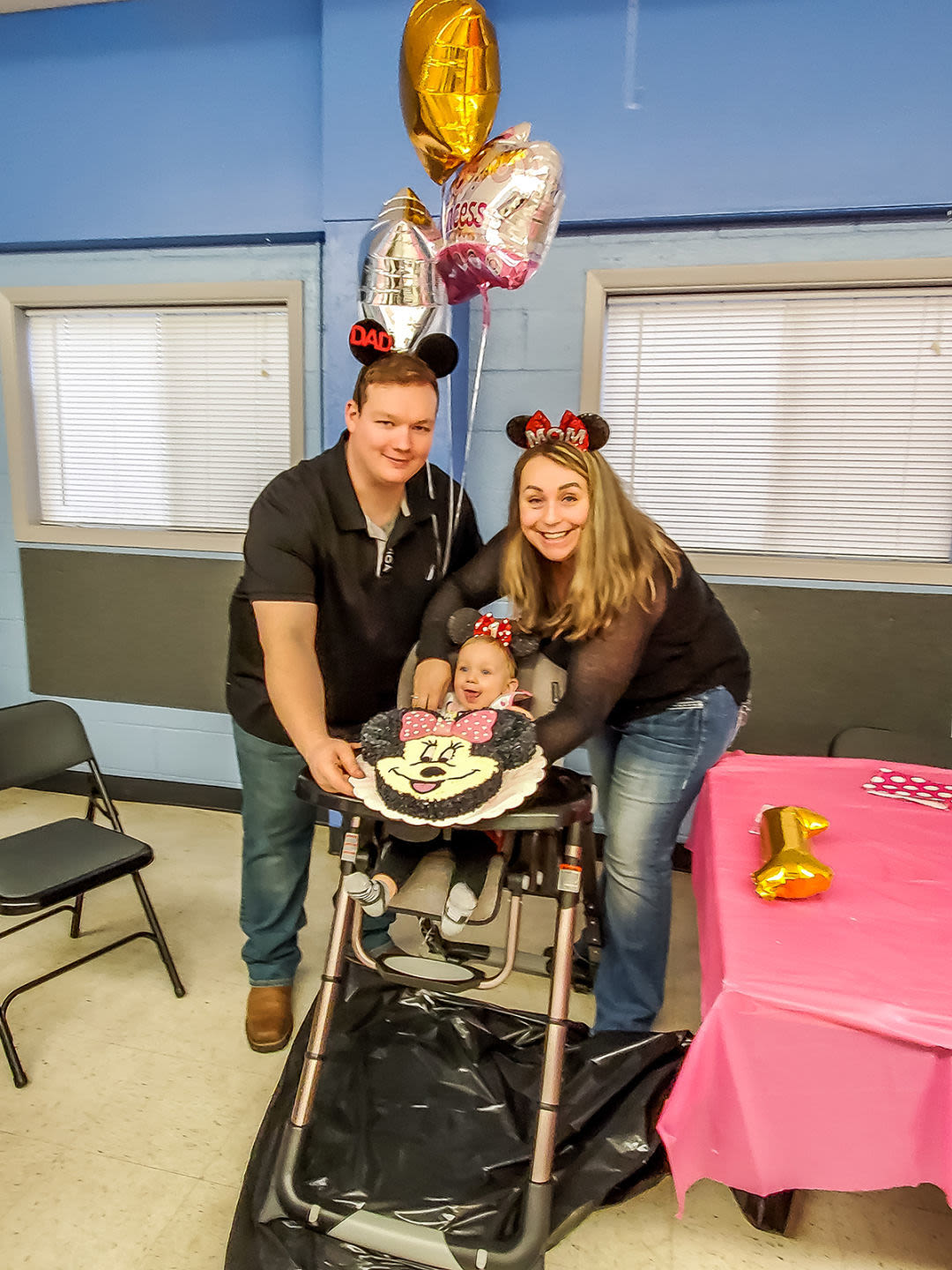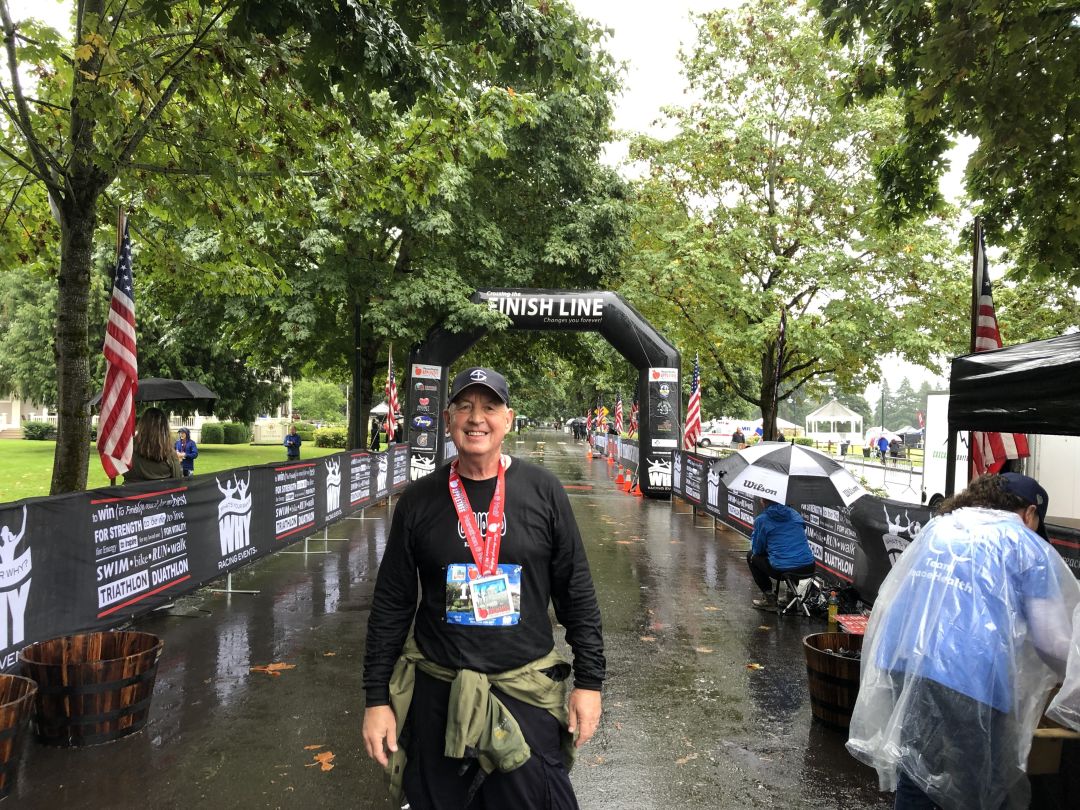Oregon’s Only Virtual Cardiac Rehab Program Helps Patients Heal and Recover

Sherie Cross-Linstead suffered heart failure just three days after her baby was born. Thanks to Kaiser Permanete's virtual cardiac rehabilitation, she was able to celebrate her daughter's birthday a year later.
Image: Courtesy Kaiser Permanente
Kaiser Permanente member Sherie Cross-Linstead couldn’t help but reflect on her serious medical issues from the past 12 months as she watched her one-year-old daughter gleefully smoosh birthday cake with her tiny fingers.
Another Kaiser Permanente member, Mike White, looked forward to fast-walking his fifth half-marathon.
Despite their plans to celebrate big, life-affirming milestones, each found themselves needing urgent medical attention for a heart condition.
Sherie, 37 years old, was treated for heart failure just three days after her baby was born. Mike, 71, postponed the 13.1-mile race he had been training for and instead had surgery to bypass a blockage in his coronary artery.
After their discharge from Kaiser Sunnyside Medical Center, Sherie and Mike continued their recovery, thanks to a trailblazing new service from Kaiser Permanente’s Center for Heart and Vascular Care—the Northwest’s top-rated heart program (as rated by the Society of Thoracic Surgeons).*
The new service, virtual cardiac rehabilitation, or VCR is the first and only of its kind in Oregon and is a convenient alternative to traditional, center-based cardiac rehabilitation.
Virtual Healing Through Fitness Tracking
Eligible members wear a fitness tracker (similar to a wristwatch) that records their steps and heart rate. They upload their data to a secure app on their smartphone and share the results with their VCR team. Regular phone and follow-up visits help keep members on target for achieving their wellness goals.
Kaiser Permanente began offering VCR as an option in June 2019. The completion rate is about 80 percent—four times greater than the center-based program.
Providing Choice: Virtual vs. Center-Based Rehab
Both forms of cardiac rehab help address lifestyle behaviors that increase one’s risk of heart disease, such as lack of aerobic activity, high blood pressure, high cholesterol, diabetes, smoking, excess weight, and stress.
Center-based cardiac rehab consists of monitored physical exercise in a hospital or clinic three times a week for 12 weeks. That program’s “virtual” cousin gives patients the flexibility to exercise however and whenever they choose, with remote monitoring from specially trained cardiac nurses. Participation is typically up to a year.
Nationwide, patients who participate in cardiac rehab tend to live longer, have a better quality of life and need fewer hospital readmissions, according to Dr. Siobhan Gray, medical director for VCR at Kaiser Permanente.
Despite those tremendous benefits, patients often cite work commitments, transportation issues, and insurance copays as typical barriers to participating in traditional, center-based cardiac rehab.
“We wanted to find a way to help our members overcome those barriers, so they could benefit from all that cardiac rehab has to offer,” says Dr. Gray.

Mike White completed a 13.1-mile walking race 16 weeks after VCR care with Kaiser Permanente.
Image: Courtesy Kaiser Permanente
Care, Support, Convenience, and Control
Sherie says the VCR team “made me accountable without being pushy. They were great at suggesting activities and food options. They were caring, creative, and always supportive. As a busy working mother of a newborn, I appreciated their help in finding ways to insert exercise into my day.”
Mike, an avid walker, attended a center-based program following a heart attack several years ago. He says it was “helpful to talk to other patients who were going through a similar situation.” Now that he knows what to expect, he prefers the virtual version because it gives him more convenience and control.
He credits VCR and the entire cardiology team for helping him to complete the 13.1-mile race that he had postponed 16 weeks earlier. He also says, “Finishing the half-marathon is a symbolic beginning of many more opportunities to thrive, thanks to Kaiser Permanente.”
Learn more about high-quality cardiac care at Kaiser Permanente at kp.org/cardiac/nw.
*Based on performance for adult heart bypass, aortic, and mitral valve replacement surgeries. Analysis of national data covering the period from January 2016 through December 2018. Find out more here.




